A Baltic Midsummer 3: Dzeguzkalns
Sandra and I had our fill of the Ligo festivities on Riga’s Krastmala, so we checked out the other celebration in Dzeguzkalns, a wee park on the other side of the Daugava river. We were attracted to the promise that it’d be more traditional and perhaps a little less crowded.
Midsummer celebrations in Dzeguzkalns
Like the larger celebration we’d left, there were food stalls and wreath stands that let women make their own but charged men for theirs. However, the similarities end there. The abundance of trees heightened the feeling of intimacy and they formed an apt link to pre-Christian beliefs that Ligo is based on.
A dance was already taking place in the Dzeguzkalns amphitheatre, and members of the audience were invited from time to time to join in on the stage. I still understood almost nothing that was said about the programme, but I was quite content to sit back with Sandra and enjoy some cheese and honey beer.
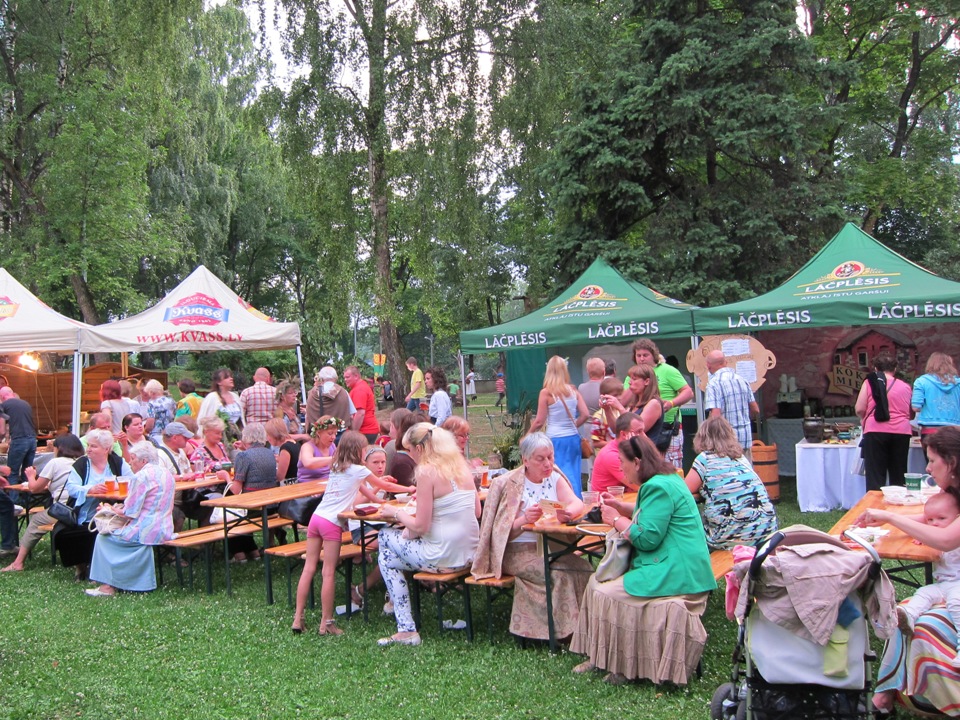
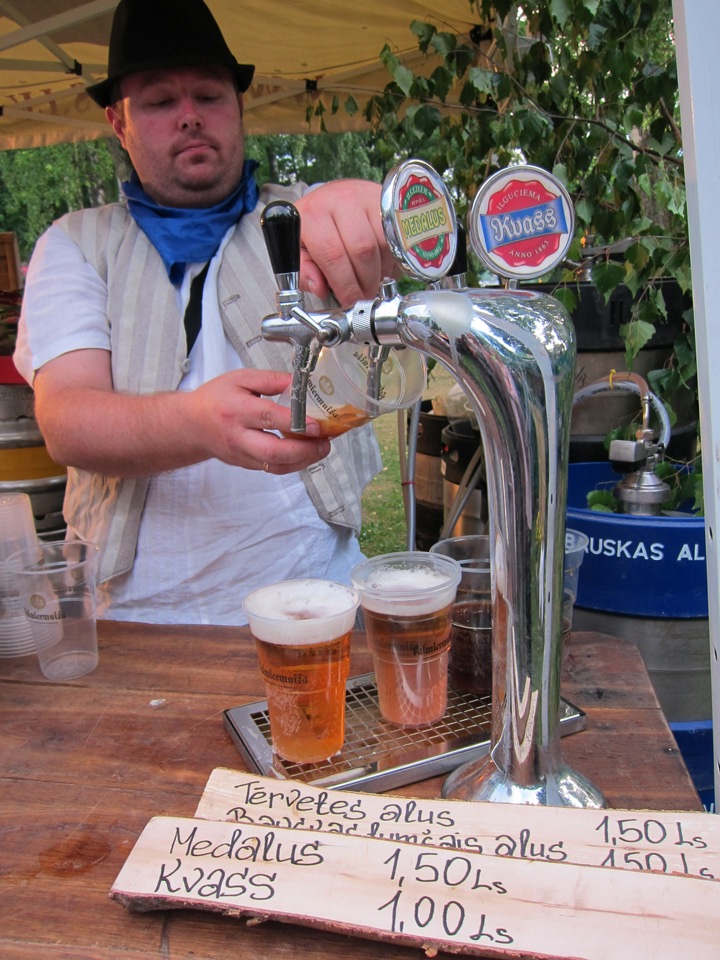
I have to tell you about the caraway cheese, which is a delicacy linked to this holiday. It was also available at the embankment celebration, but even though I wanted to eat some, I wasn’t prepared to pay 1 lat for just a few slices on a round paper plate.
Thank God I held out. Now, look at this cheese board, which is also 1 lat but comes with strawberries and decorative oak leaves. I was sold on the presentation – how can you not be?
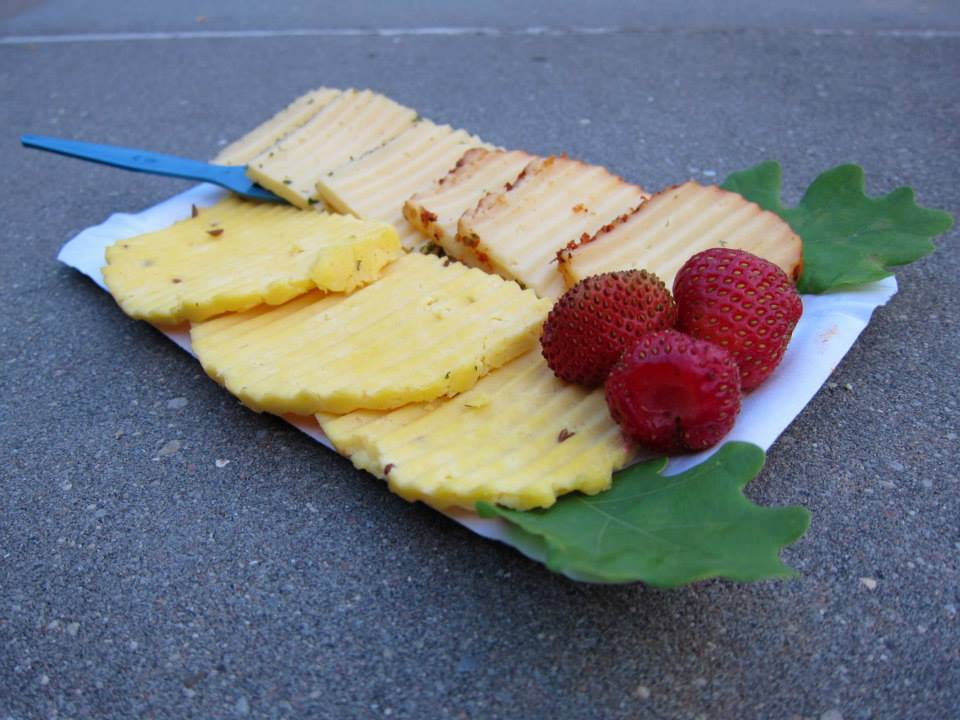
What’s the difference between the two kinds pictured? The darker one is more savoury in an umami way, while the flavour of the seeds is more pronounced in the lighter one. I finished them with equal glee.
Away from the performances, people cast their old and dried wreaths from the last year onto the pyre, and you could smell that it’d been doused with kerosene. Both of us found a spot where we could get a good picture of the bonfire and feel a bit toasty.
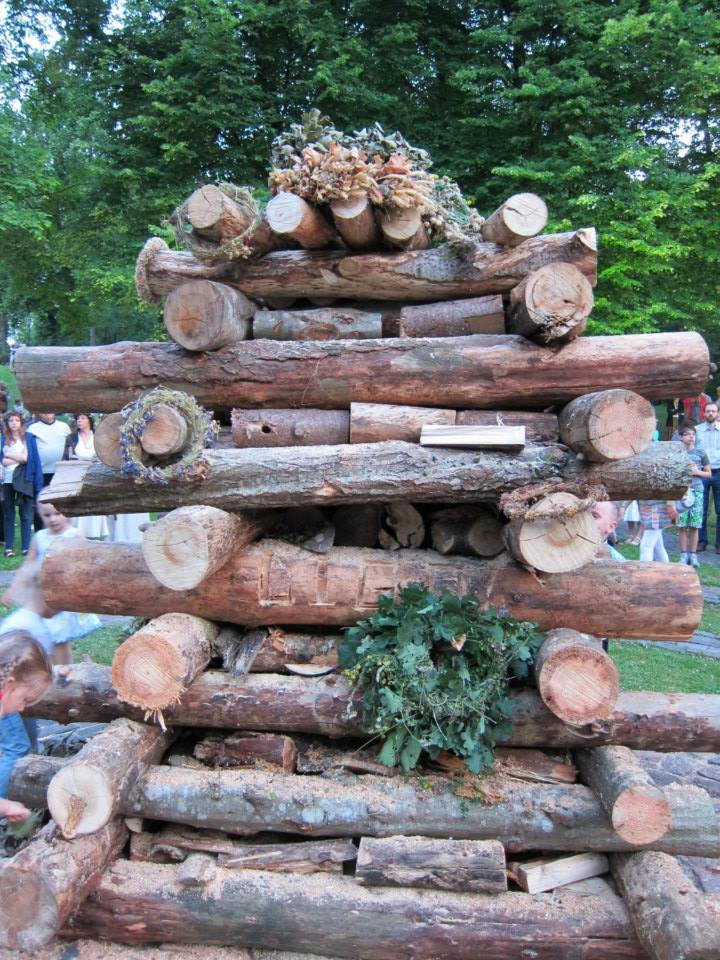
As 9.30 p.m. approached (mind you, the sky was still light) the crowd around the pyre grew. The song leaders from the amphitheatre moved to where we were, and at the top of the slope, a large cartwheel was set alight, It was allowed to roll slowly towards the pyre while people sang this Ligo song for as long as their energy and attention allowed them to.
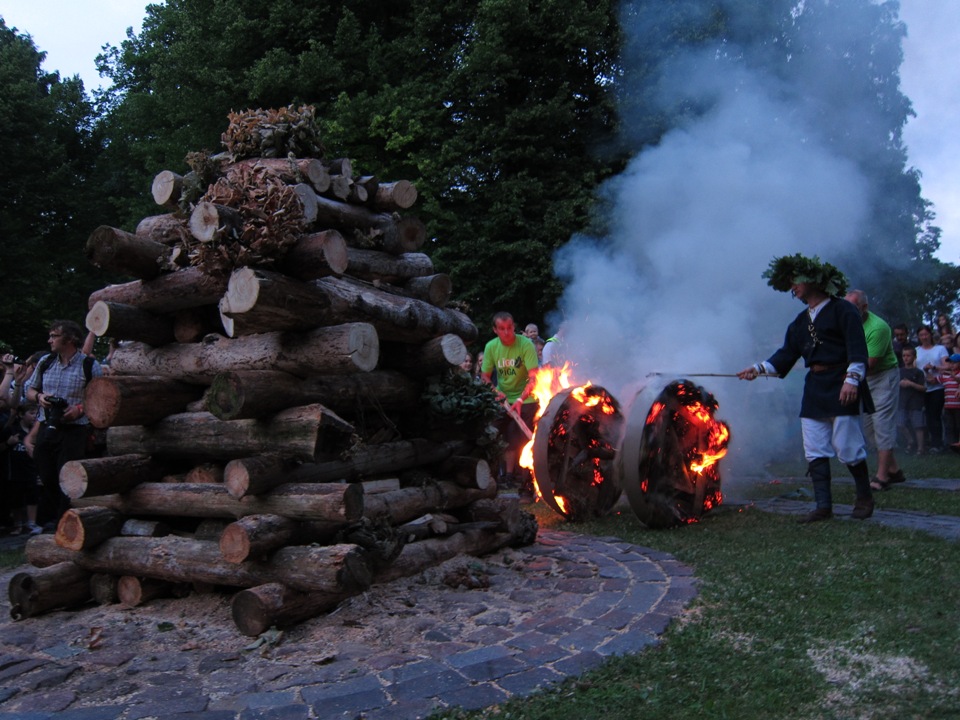
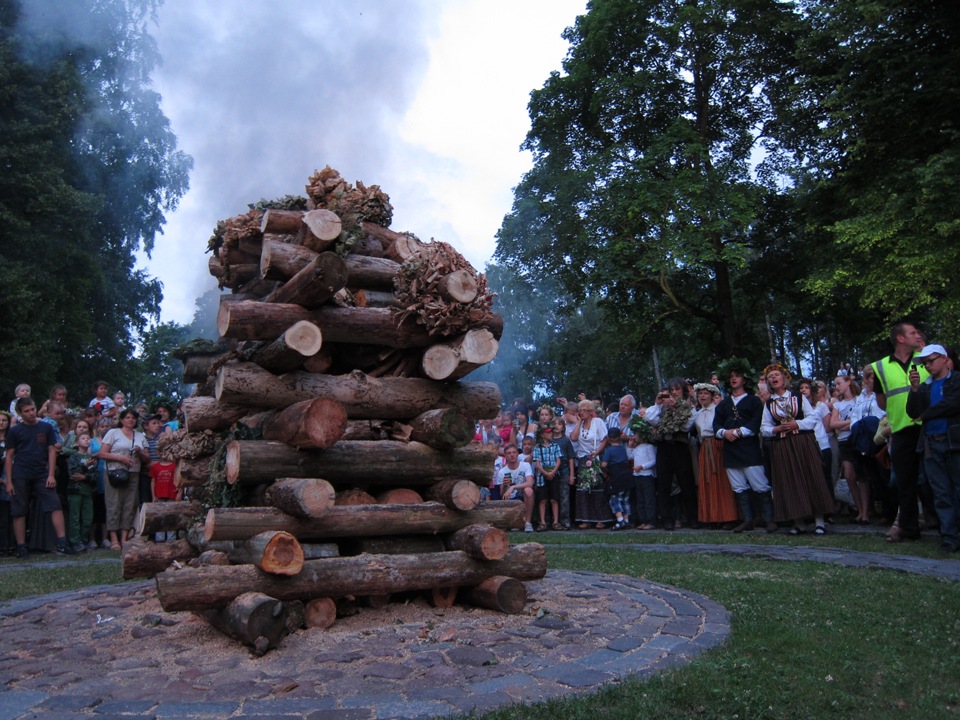
There were no loud cheers or pyrotechnic displays when the burning wheel touched the pyre. The fire grew slowly but steadily, perhaps buoyed along by the singing and the swaying of the crowd, and it eventually consumed the wood and the old wreaths. It’s considered lucky to jump over a midsummer bonfire, but only a fool would attempt to do so right here without a vaulting pole.
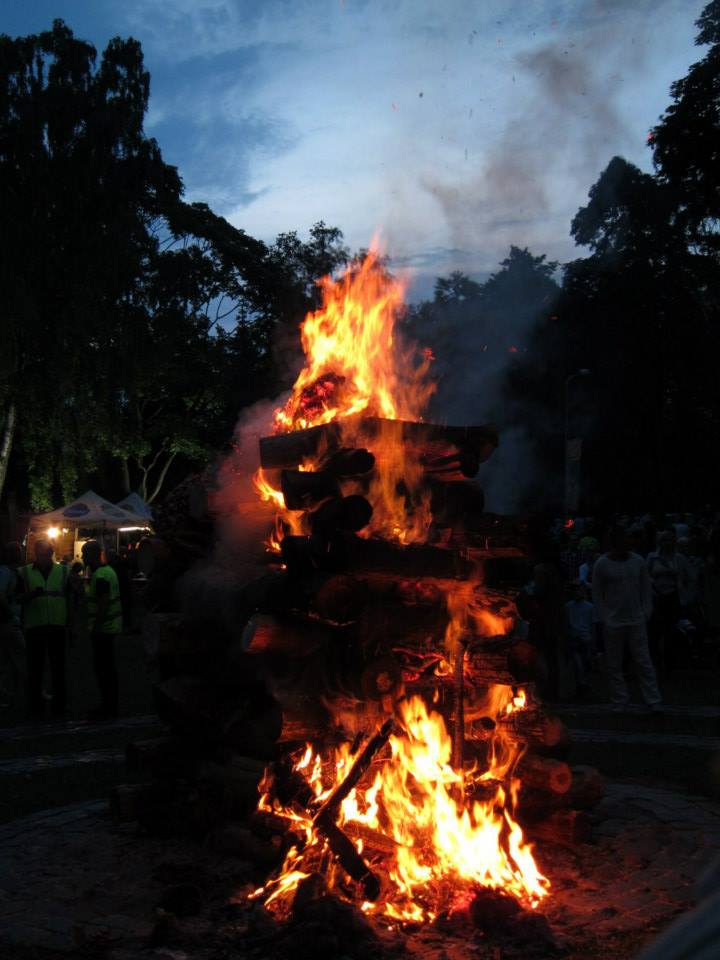
The performances continued well into the brief night, apart from a short interruption by the mayor of the city, and they were still singing when the sun rose at 4.30am. Oh, Baltic nights don’t get completely dark at this time of the year, but they aren’t as freakishly light as the Finnish midsummer nights, where the skies don’t even turn ultramarine. Long before the sun reappeared, I was too tired to join in, and sleep was so inviting. Many kids had already accepted the invitation – so much for hunting for mythical fern flowers then.
That was the climax of my virgin Ligo experience, and I was very happy that I could fulfil that years-old wish in the company of a dear friend. Yes, you might argue that it wasn’t as “authentic” as it could be (i.e. one passing out drunk on the shore of a lake by a bonfire, according to another friend of mine). The city celebrations were still oodles of fun for one getting a first taste of the festivities.
If you get an invitation to join someone out in the countryside in the Baltics or Scandinavia for the holiday, don’t turn it down. If you don’t, fret not. There is enough magic in the cities to go around.
P.S. In case you missed them, this is where you’ll find Part 1 and Part 2 of my Latvian midsummer
A Baltic Midsummer, Part 2 | Ramble Camp
10/11/2013 @ 6:05 PM
[…] of the river promised a more intimate and traditional experience, and we wanted to catch that too. Part 3 is where I’ve covered […]